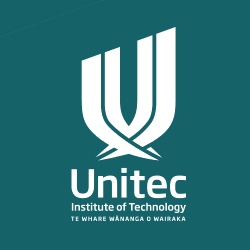
Training Manual for Teachers Working with Pacific Students: Engaging Pacific Learners
Status
Completed: 1 December 2009
Project Details
A project, undertaken by Unitec Institute of Technology, to develop a resource to assist teachers working with Pacific students in tertiary settings by providing ways to enhance their ability to engage in class discussion and content.
Aims:
The main aims of the project were to:
- employ appropriate teaching methodologies and use cultural contextualisation and customisation of teaching to respond to Pacific learners
- embed Pacific knowledge, values and practices in the Unitec curricula to enhance Pacific learners’ learning through engagement in class discussion and with class content
- prepare student-centred delivery which utilises specific teaching tools such as metaphors and stories
- create positive learning environments through identifying and supporting cultural nuances, contextualisation and customisation of teaching of teaching content
- assist teachers that work with Pacific students in the tertiary environment by providing ways to enhance Pacific learners’ ability to engage in class discussion and with class content.
Methodology:
The project methodology involved:
- a review of the literature on engagement of Pacific learners, students’ evaluation and tutors learning experiences
- drawing on the experiences of Unitec staff looking at meaningful ways to engage Pacific learners in classroom discussions and class content
- surveying students enrolled on Pacific-based delivery of the Graduate Diploma in Not for Profit Management in 2008 and 2009 by independent evaluators to assess the relevance of the programme and delivery appropriateness.
Team

Sandy Thompson
Unitec Institute of Technology
Fraser McDonald
Unitec Institute of Technology
Malia Talakai
Unitec Institute of Technology
Venusi Taumoepeau
Unitec Institute of Technology
Aue Te Ava
Unitec Institute of TechnologyStatus
Funding
$4,500.00 (excl GST)
Key Findings
The key findings from the project included:
- Unitec has been delivering the Graduate Diploma in Not for Profit Management (GDNMP) to Pacific students both in New Zealand and in the Pacific since 1999. Participants in the programme are mature students who have management roles in community based non-profit organisations. The focus of the programme is on values-based management training which empowers managers to work in a complex and dynamic environment.
- The ratings of tutors for all questions were excellent or close to excellent. Over 90% of all students rated clarity of communication by tutors; level of engagement in activities; tutor knowledge of subject; effectiveness of facilitation; appropriateness of training tools; and support inside and outside of the classroom, as excellent or close to excellent.
- Over 90% of the students rated course content and relevance as excellent or nearly excellent.
- Over the years of delivery, the programme has received consistently positive feedback from Pacific learners. It has demonstrated high levels of retention and success for Pacific students when compared to other data, including nationally collated statistics. In 2010 domestic Pacific students enrolled in courses with the GDNMP as their main programme had a 14% higher course success rate than domestic Pacific students in other formal Unitec courses.
- In addition, domestic Pacific students enrolled in courses with the GDNMP as their main programme had a course success rate 35% greater than the 2005-2009 national tertiary average for Pacific Students (Ministry of Education, 2011).
- These ratings reflect the levels of engagement of students in the classroom process and content. Much of this positive feedback has been due to good teaching methodologies such as student-centred teaching practices which work well to engage Pacific learners.
- Research supports the success of these methodologies with Pacific learners in the New Zealand context and elsewhere. Additionally, years of experiences working in the Pacific and in New Zealand with Pacific learners has provided valuable learning on the customisation of teaching to suit Pacific learners.
Key Recommendations
The key recommendations from the project highlight the three areas which when addressed create a positive learning environment that support students who come with a range of learning styles and a range of cultural backgrounds. It is therefore important that tutors:
Create a supportive and safe environment | For Pacific learners to engage, a safe and supportive environment must be created to allow for this to happen. In this regard, several factors play equally important roles in the provision of a safe and supportive environment. Factors include building trusting relationships with learners, believing and feeling passionate about learners, showing learners you care so that they feel comfortable to communicate and join the discussion, talking with them and not at them, providing food and space.
Acknowledge the context of Pacific learners | The cultural background and identity of the learners strongly influences the extent to which they engage in a course of study. Pacific communities in New Zealand have a strong sense of cultural identity which is influenced by traditional practices. At the foundation of this is a society based on collectivism where individuals are recognised as such but always in the context of their family or community. This creates a specific dynamic in our teaching, meaning that while we assess our students individually we make use of study groups and peer support in analysing concepts. We also utilise reflective journals to encourage individual analysis and application to students’ specific work environments.
Use appropriate teaching methods | A strong emphasis is placed on addressing the range of learning styles amongst the students. Some of the teaching tools that are particularly successful include: interactive activities; defining concepts using visuals and images; instructions written up as well as spoken; contextualisation and customisation of content; Pacific case studies; traditional stories; clear handouts and reading summaries; glossaries and wall charts.
A research report prepared by Sandy Thompson, Fraser McDonald, Malia Talakai, Venusi Taumoepeau and Aue Te Ava.
(PDF, 4.15 MB, 38-pages).
- 1 December 2009
A video resource to assist teachers working with Pacific students in tertiary settings.
(YouTube, 1.13 mins, 240p).
- 1 December 2009
A video resource to assist teachers working with Pacific students in tertiary settings.
(YouTube, 1.59 mins, 240p).
- 1 December 2009
A video resource to assist teachers working with Pacific students in tertiary settings.
(YouTube, 1.45 mins, 240p).
- 1 December 2009
A video resource to assist teachers working with Pacific students in tertiary settings.
(YouTube, 1.52 mins, 240p).
- 1 December 2009
A video resource to assist teachers working with Pacific students in tertiary settings.
(YouTube, 1.58 mins, 240p).
- 1 December 2009